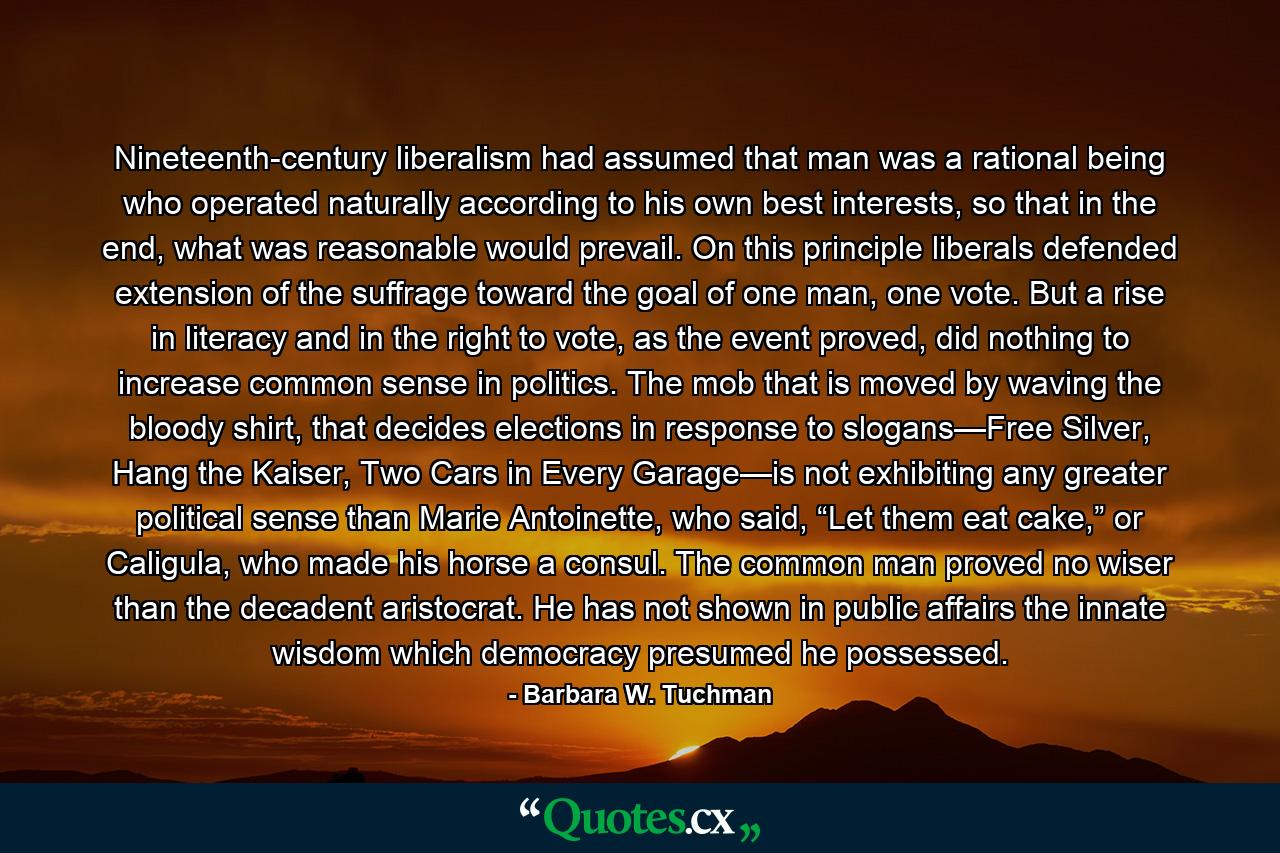Nineteenth-century liberalism had assumed that man was a rational being who operated naturally according to his own best interests, so that in the end, what was reasonable would prevail. On this principle liberals defended extension of the suffrage toward the goal of one man, one vote. But a rise in literacy and in the right to vote, as the event proved, did nothing to increase common sense in politics. The mob that is moved by waving the bloody shirt, that decides elections in response to slogans—Free Silver, Hang the Kaiser, Two Cars in Every Garage—is not exhibiting any greater political sense than Marie Antoinette, who said, “Let them eat cake,” or Caligula, who made his horse a consul. The common man proved no wiser than the decadent aristocrat. He has not shown in public affairs the innate wisdom which democracy presumed he possessed.
